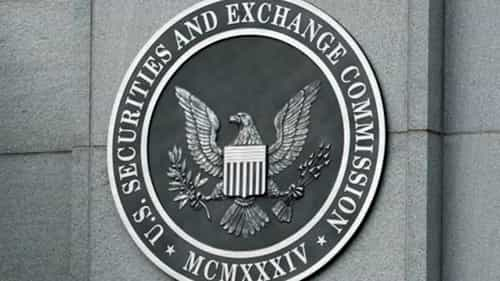CryptoCurrency Lawyers: Law on The Blockchain
Navigating the regulatory environment around cryptocurrencies has not been easy.
Whether you’re a crypto trader making unprecedented capital gains, or a Blockchain company that’s just raised a $10million in your ICO, the rules around how to operate in this space are either murky or non-existent. That is where cryptocurrency lawyers come in.
In the face of this regulatory uncertainty, crypto lawyers are quickly becoming the most sought-after professionals.
We analyzed what the best times are to use them, and where to find them.
Current Climate
The crypto space is a prime example of how laws always tend to fall a few steps behind innovation.
CryptoCurrencies are Not Recognised as Money
According to the IRS, the definition of money is ‘the legal tender of a sovereign state’. At the current moment, Bitcoin and other cryptocurrencies are not considered a currency but a commodity.
Their volatile nature has caused regulators to propose that it be subject to capital gains tax and treated like stocks.
Legal Framework For ICOs is Shaky
ICO’s have completely democratized how companies raise funding. No longer do you have to be an ‘accredited investor’ (aka, someone rich enough to afford the risk of being defrauded) to participate in funding companies that will potentially change the world.
However, this does come with its downsides, as the vast majority of ICO’s are raising money selling what people in the crypto space call ‘shit coins’, or tokens based on unrealistic or downright fraudulent promises.
When there are no rules around businesses raising money from the general public, there are going to be some scams.
In response to this, the SEC has issued subpoenas to 80 Blockchain businesses in the past few months alone. Their primary goal is to investigate the legal standing of these businesses, and whether the tokens they’re selling are securities like stocks that must be registered.
No Legal Recourse for Fraud
Many unfortunate victims have been caught on the wrong side of the ICO craze.
In a desperate attempt to promote fraudulent ideas, some of these companies have turned to the endorsement of celebrities like DJ Khalid and Floyd Mayweather, only later to be convicted of fraud and to potentially drag these influencers down with them.

However, the most affected victims of these scams are everyday people, who in pursuit of quick riches invest far too much of their hard earned money into fraudulent ICO’s promising 10 or 100x returns.
With no insurance policy or legal recourse, these companies’ can simply disappear after collecting millions of dollars.
Even when all participants in the ICO process are honest actors, we still have to deal with the aftermath of hackers stealing funds from exchanges, and there being no legal representation to fight your case, nor any locally registered entity to hold liable.
These cases are perfect examples of why many call the crypto space the ‘Wild West’.
Although freedom leads to incredible innovation, and all investors should practice personal responsibility, there are still incidents where an overarching legal precedent needs to be set in order to keep the worst actors at bay.
Fortunately, there has been a massive surge in cryptocurrency lawyers stepping up to help investors and companies navigate the growing list of new laws governing the space.
When to Hire a Crypto Lawyer
If you were either launching a cryptocurrency project or you were an investor who was considering investing in one, it is important to know when you should be reaching out to a crypto lawyer. Below are a few cases when it should be considered.
When Launching and ICO or Issuing Tokens
Cryptocurrency lawyers are necessary to help you understand whether your tokens qualify as a security (or ‘investment contract’) under the ‘Howey Test’.
The test evaluates an asset based on the following criteria:
- It is an Investment of money
- There is an expectation of profits from the investment
- The money invested is in a common enterprise
- Any profit comes from the efforts of a promoter of a third party

To avoid being considered a security, the asset has to reliably fail at least 1 of the 4 criteria.
A security usually represents an ownership stake in a publicly traded corporation (via stock). Owning a security can come with certain privileges, including monthly payouts (dividends), the ability to profit from capital gains when the stock sells the securities, and in some cases, voting rights.
Selling a security requires being registered with the SEC (Securities and Exchange Commission) and abiding by a strict set of laws that require (among other things) disclosing the companies financial records in order to protect citizens from being defrauded from their investment.
Currently, most blockchain company issue tokens that can be classified as both a security and utility.
These tokens are utilities because they have a function within their Blockchains ecosystem. For example, Filecoin, uses its token to pay for file storage space, while also offering it on the public market for people to acquire as a speculative investment.
Cryptocurrencies fall into a grey area a legality that is hard to define except when assessed on a case-by-case basis, which is why legal advice is crucial.
When Trading Crypto and Filing Taxes
In the US, virtual currencies are treated as a capital asset, meaning you have to record and report capital gains on your cryptocurrency holdings.
However, most people aren’t sure whether that rule only applies once you liquidate your crypto into fiat, or if you must track all capital gains for each trade you make on exchanges (good luck with that).
What’s clear is that as a crypto trader or a blockchain company, you need a crypto tax attorney to help you take advantage of opportunities and to avoid unnecessary risks based on an ever-changing crypto tax codes.
In the end, it doesn’t matter that you didn’t know you broke the tax rules, it just matters that you broke them.
Finding the Right Legal Team

By now there are hundreds of legal firms offering advice on cryptocurrencies services online, even though most are likely not qualified to do so.
Startups and investors need to understand how to filter through the noise.
Nick Abrahams, partner and Global Head of Technology and Innovation at Norton Rose Fulbright recommends that startups “look for law firms that have a deep understanding of the sector and if applicable, strong financial services regulatory and securities law capabilities”.
Lee Schneider, Partner at McDermott, Will & Emery, believes that a lawyer operating in this severely unregulated space needs to apply a dash of creativity in addition to their experience.
He also believes that cryptocurrency startups should strike a balance between adhering to regulations and ensuring the growth and continued innovation of their company. Scheider said "It’s like being presented with a series of interesting mental puzzles"
Schneider also urges startups to be weary of legal services offering ‘easy answers’ to complex legal problems. He went on to say
We’re having to take existing concepts that we know and try to fit new ways of doing things into those concepts. Sometimes we even try to reshape those boxes. People are going to be grappling with these complicated legal issues for a long time
One such example of reshaping those boxes is the SAFT agreement.
Developed by innovative law firm Cooley LLP, the SAFT (Simple Agreement for Future Tokens) is a legal template that can be used by blockchain companies to launch and issue tokens is a far more regulatory compliant manner.
With the SAFT, startups first go through a traditional fundraising round with Accredited investors.
Investors pay money to the startup in exchange for a right to tokens once the blockchain network is developed.
Once the funds are raised, the startup begins developing the network, and doesn’t release any tokens until they can become functional.
Once the network’s basic functionality exists, the startup creates the tokens and delivers them to the investors, who can sell them to the public on the open market to realize their profits.
This process prevents the issued tokens from being labeled as a security, as there is no expectation of profit from the tokens prior to the network being developed, and once the tokens are issued to the investors, any such profits have to be initiated on their own behalf, and not from the efforts of others.
A strong understanding of the SAFT agreement should be mandatory for any cryptocurrency lawyers you consider hiring.
How to Engage Them?
The best way to engage a cryptocurrency law firm is initially through a consulting session.
You want to first get a sense of how much they understand the crypto space and how much effort they’re willing to put into creating a custom legal framework for your business or personal needs.
Only agree to work with the firm if they can offer you at least a few hours of free consulting.
Before agreeing to talk, do your own research online to find out what advice crypto lawyers are recommending for your particular case. Once you are armed with this basic knowledge, you can have the law firm consult you, and assess how their advice stacks up.
There’s no doubt that any cryptocurrency legal firm you hire will be very expensive. Because of how new the crypto space is, legal firms will most likely be conducting extra hours of research free of charge in order to properly advise you.
Keeping this in mind, it’s better to first agree on a consulting session so that you can sample their services before paying full price.
How will Blockchain Law Evolve?
Blockchain law cannot evolve until the people who create the laws are as knowledgeable about the space as those who work in it everyday.

Education remains the biggest barrier to blockchain law evolving, and unfortunately, a lot of regulators are out of touch with even yesterday’s technology.
When we have events like Mark Zuckerberg’s Congress hearing turn into an education session on how the Internet and social media works, it’s hard to be optimistic about regulators grasping the value of cryptocurrencies and Blockchain.
Fortunately, a few regulators have committed to studying the space, most notably Valerie Szczepanik (aka, the ‘crypto czar‘)
During her two-decade tenure at the SEC, Valerie has held several prominent roles, including assistant director in the Division of Enforcement’s Cyber Unit, head of the Distributed Ledger Technology Working Group, and co-head of its Dark Web Working Group.
She was part of the team that investigated The DAO hack on the Etheruem blockchain, and is also involved in several pending cryptocurrency legal cases, including the REcoin, Centra Tech, Inc., and Plexcorps cases.
Valerie’s knowledge about how cryptocurrencies are used and why blockchain technology has long-term value make her the most qualified to regulate the crypto markets without stifling innovation.
Conclusion
In a highly unregulated space where small investors are getting burned, taxes are going unreported and funds are stolen from hacks, it’s imperative that people seek out industry knowledgeable crypto lawyers capable of defining how companies should raise funds, and how individuals should protect themselves and report their capital gains.
Only through continued collaboration between legal professional and the crypto community can we expect to see blockchain law evolve and grey areas of uncertainty become clearer.
Disclaimer: These are the writer’s opinions and should not be considered investment advice. Readers should do their own research.
